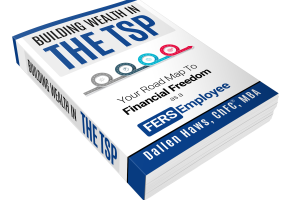If you have any unused sick leave on the books when you retire then it can help increase your pension for the rest of your life.
But only if some criteria are met.
What it Gets You
Your pension is based on your high-3 salary, your years of service, and your multiplier.
And unused sick leave increases your years of service which then increases your pension.
You can check out this article if you want to know more about your high-3 and multiplier.
First Things First
But not everyone gets credit for unused sick leave at retirement.
To get credit you have to first be eligible for retirement with your normal years of service and age combination.
Once you are eligible for retirement then sick leave can then kick in and increase your pension after that.
For example, As a normal FERS you have to meet one of the following criteria to retire:
30 Years at your MRA (minimum retirement age)
20 Years at age 60
5 Years at age 62
So if you are 62 and have 4.5 years of normal service then having a 0.5 years worth of unused sick leave won’t get you to the needed 5 years.
But if you have 5 years of normal service at age 62 then having 0.5 years worth of unused sick leave would increase your years of service to 5.5 years when they are calculating your pension.
The One Exception-ish
The one time, however, that sick leave can help make you eligible for something is if you are going for the 10% pension bonus you’d get at age 62 with 20 years.
In this case, if you had 19 years of normal service at 62 but had 1 year worth of unused sick leave then you would be eligible for the 10% bonus.
This is because at age 62 you are technically already eligible for retirement as all you need is 5 years of service at that age.
The extra sick leave then adds in to make you eligible for the 1.1% multiplier (10% bonus).
How to Change Sick Leave Leave Hours to Years of Service
But if you have, let’s say, 500 hours of unused sick leave at retirement, how do you know how much service time that is worth?
Here is the chart that shows how it works:
Source: https://www.usgs.gov/human-capital/sick-leave-conversion-chart
In the body of the chart, find the number that is closest to the amount of sick leave hours you will have at retirement.
The column that your number is in will show you how many months that is worth and the row will show you how many days it is worth.
And if your sick leave number falls between two different numbers of the chart, then go with the higher number.
For example, if you have 990 hours, then you’d round up to 991, which would equate to 5 months and 21 days of service time.
Extra Days Drop Off!!
But when they calculate your pension they only use full years and months of service.
Any extra days drop off.
But this drop off only happens after you add the sick leave time to your normal years of service.
For example, if you have 30 years, 4 months, and 18 days or normal service and 3 months and 15 days of sick leave, then this is what would happen for you:
In this example your pension would be based on 30 years and 8 months as the 3 extra days dropped off.
Note: When doing this math months are always considered to be 30 days!
Final Note
Knowing how sick leave affects your retirement is key to not losing too many days that will end up just being dropped off your calculation.
Because anytime you learn more about your benefits/retirement the more likely you are to not leave any money on the table.


